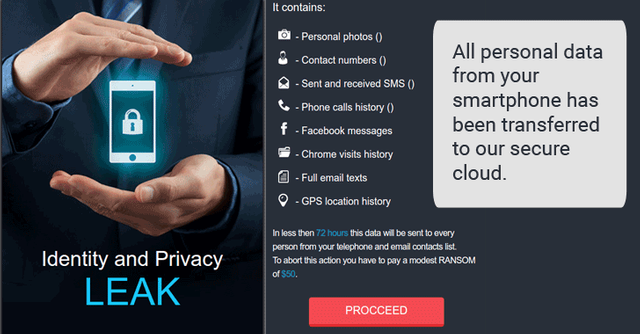After WannaCry and Petya ransomware outbreaks, a scary (but rather creative) new strain of ransomware is spreading via bogus apps on the Google Play Store, this time targeting Android mobile users.
Dubbed LeakerLocker, the Android ransomware does not encrypt files on victim's device, unlike traditional ransomware, rather it secretly collects personal images, messages and browsing history and threatens to share it to their contacts if they don't pay $50 (£38).
Researchers at security firm McAfee spotted the LeakerLocker ransomware in at least two apps — Booster & Cleaner Pro and Wallpapers Blur HD — in the Google Play Store, both of which have thousands of downloads.
To evade detection of malicious functionality, the apps initially don’t contain any malicious payload and typical function like legitimate apps.
But once installed by users, the apps load malicious code from its command-and-control server, which instructs them to collect a vast number of sensitive data from the victim's phone — thanks to its victims granting unnecessary permissions blindly during installation.
The LeakerLocker ransomware then locks the home screen and displays a message that contains details of the data it claims to have stolen and holds instructions on how to pay the ransom to ensure the information is deleted.
The ransom message reads:
All personal data from your smartphone has been transferred to our secure cloud.
In less than 72 hours this data will be sent to every person on your telephone and email contacts list. To abort this action you have to pay a modest ransom of $50 (£38).
Please note that there is no way to delete your data from our secure but paying for them. Powering off or even damaging your smartphone won't affect your data in the cloud.
Although the ransomware claims that it has taken a backup of all of your sensitive information, including personal photos, contact numbers, SMS', calls and GPS locations and browsing and correspondence history, researchers believe only a limited amount of data on victims is collected.
sources:

